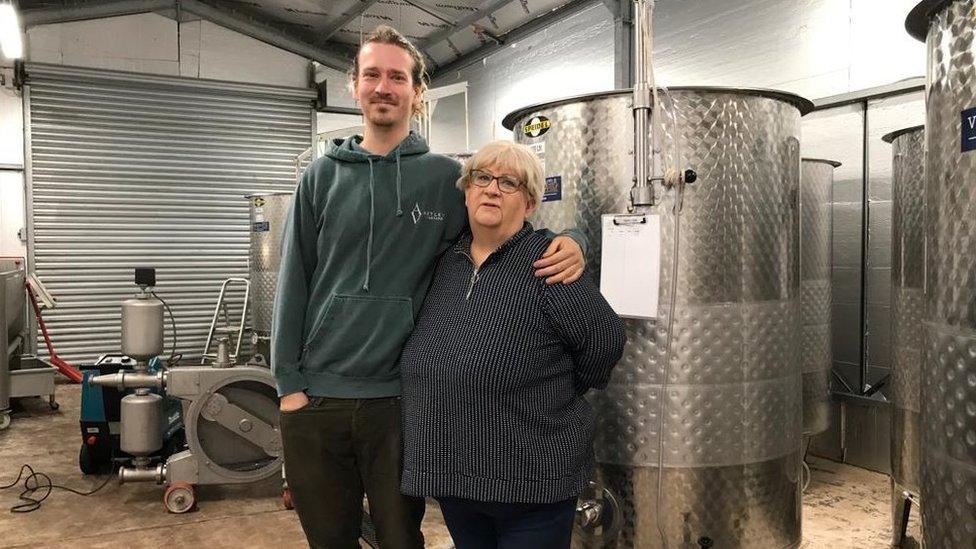Delayed summer means 'later season' for vineyards
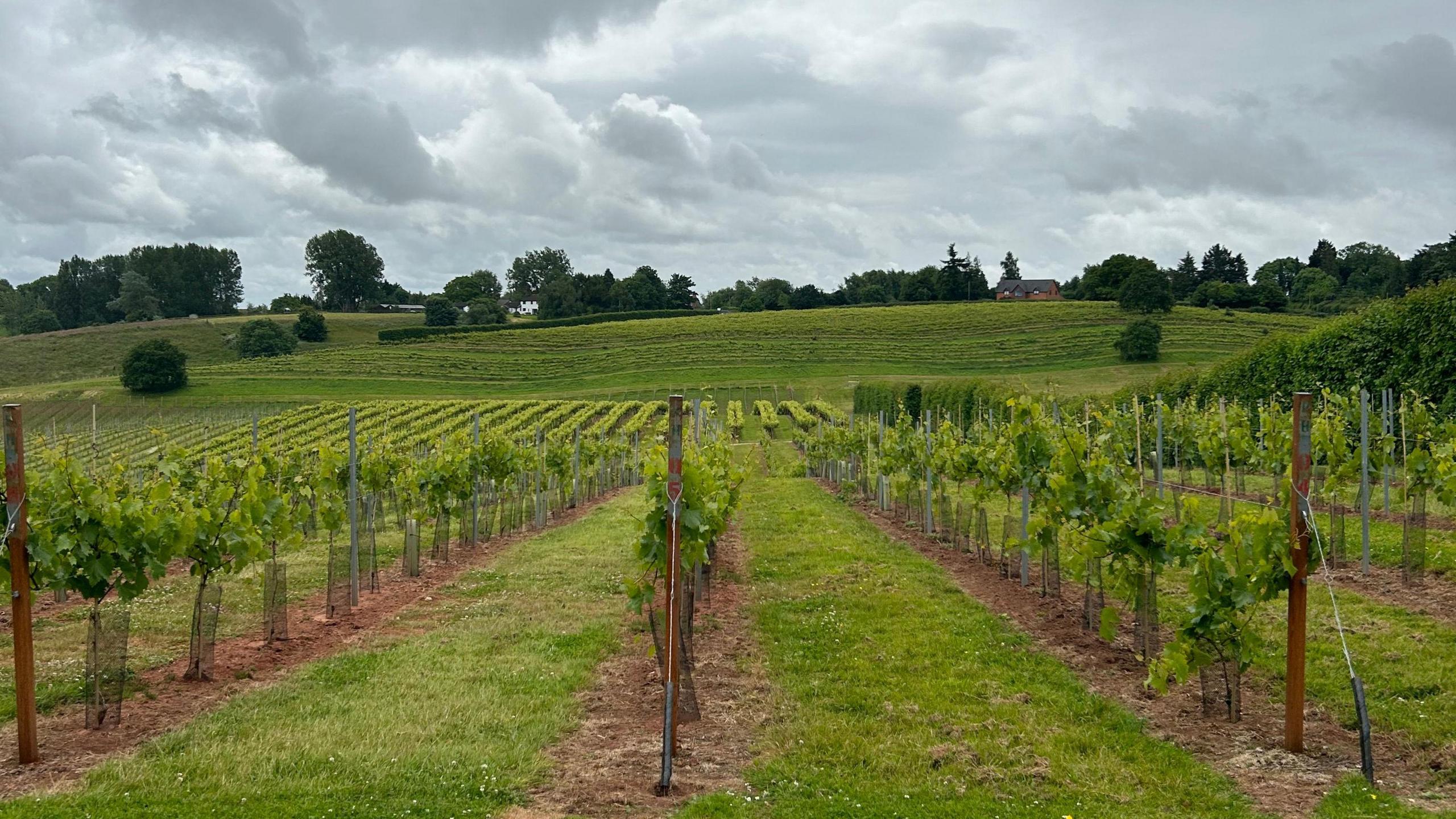
The Three Choirs Vineyard currently produces about 500,000 bottles of wine each year
- Published
A vineyard has said it "really needs some good weather" in the next month or two in order to produce nice aromatic still wines.
With the first seeds planted in 1973, the Three Choirs Vineyard in Newent, Gloucestershire, is one of England's oldest vineyards, but said it has become increasingly affected by climate change.
Wine-making director, Martin Fowke, said that the type of wine they can afford to produce depends entirely on the coming weather conditions.
"Of course we'd like some sunshine and a little bit of warmer weather, but we're very thankful that we haven't had frost," he said.
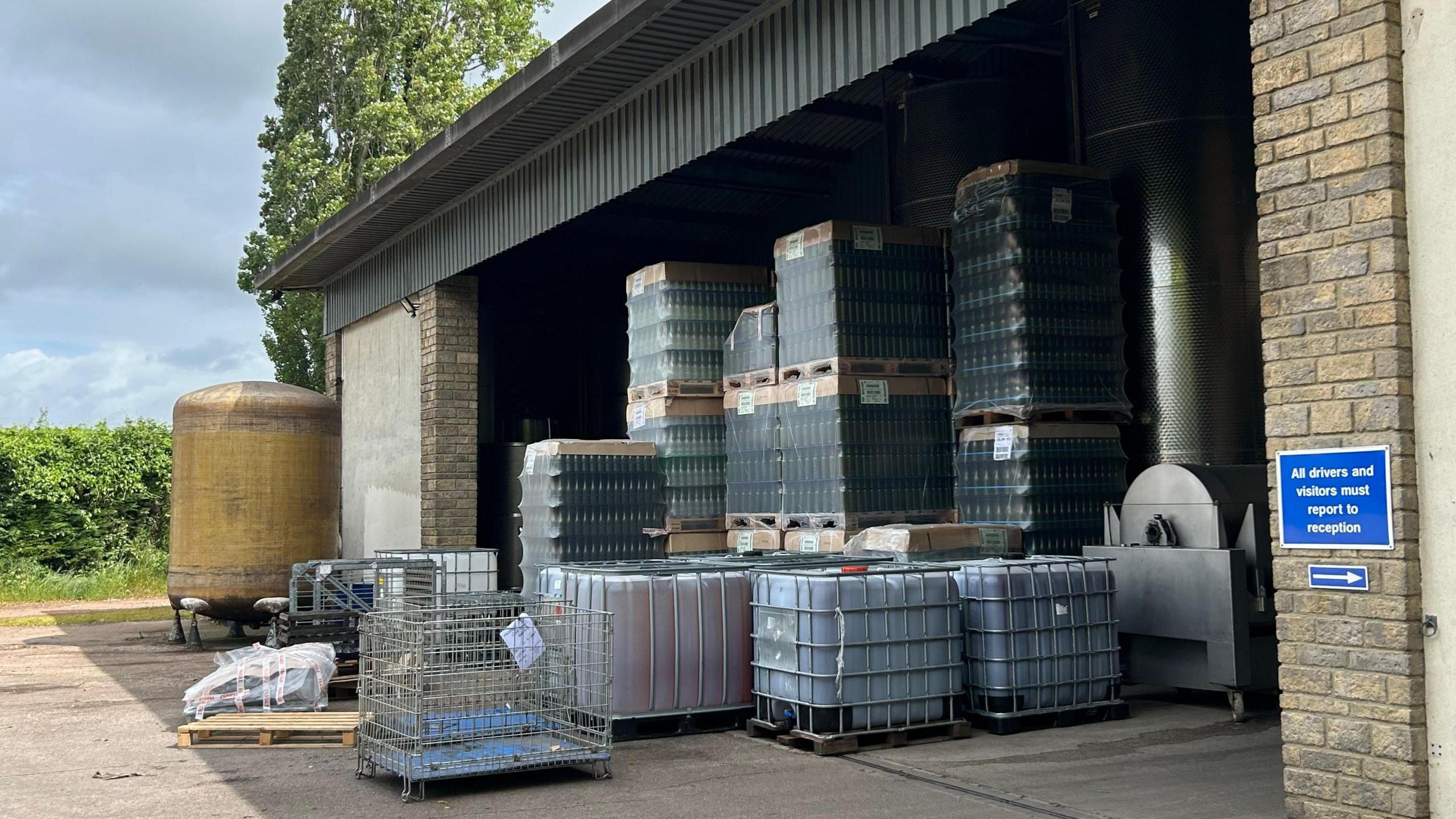
Mr Fowke said that 2023 was a very good year for making sparkling wines due to the grapes not ripening very well
When a region's climate changes it can disrupt the delicate balance between sugar, acid and secondary compounds in the grapes.
This changes the rate at which they develop and can lead to differences between sweet and acidic flavours.
"We always try and make the right wines in the right year," said Mr Fowke.
"Last year was a very good year for making sparkling wines because September wasn't particularly kind to us and the grapes didn't ripen that well, which is suited to sparkling.
"I'm not going to predict the weather, but this year, maybe we're in a later season and it'll get nice and warm in August and September and we'll produce some very nice aromatic still wines."
Mr Fowke said the "key time" will come within the next month or so, when the grape vines start to flower.
"That's when we really need the good weather," he added.
Towards the end of June is when the flowering process usually takes place in English vineyards, with better pollination resulting in more fruitful bunches of grapes.
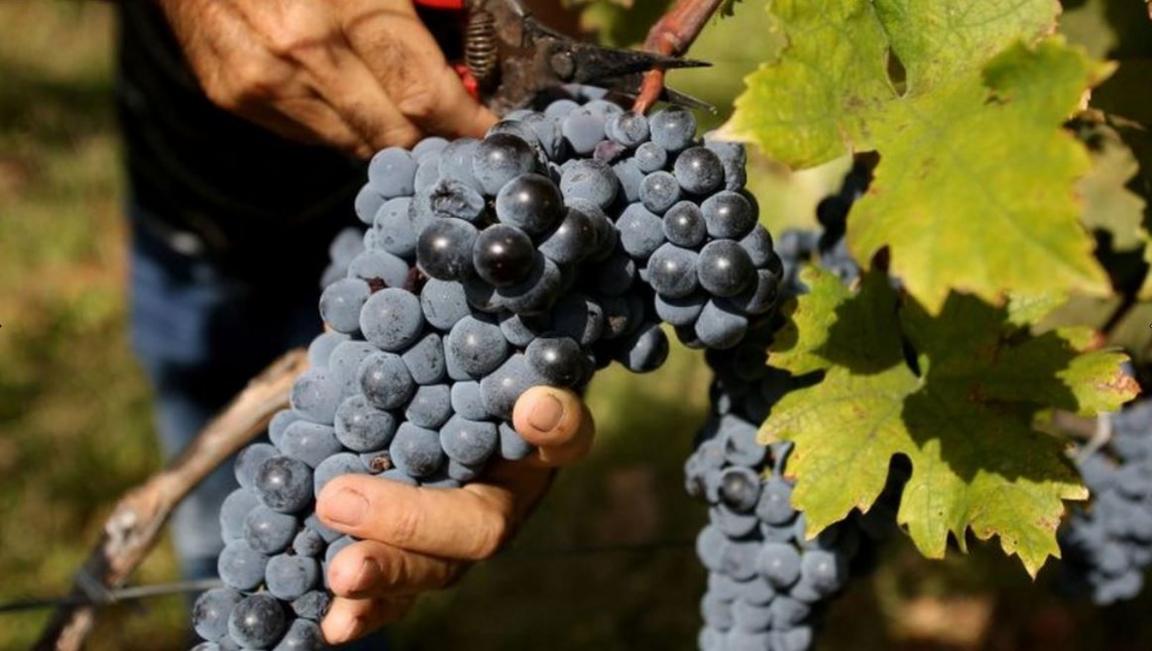
Grape vines are self-pollinating, meaning that they do not require insects for the process, but making them even more dependent on weather for success
"It's very much a later season [this year], but everything's looking OK for now," Mr Fowke continued.
"There's so much moisture around and the growth is so rapid that we're spending a lot of time controlling that in the vineyard."
Despite the turbulent weather conditions, Mr Fowke said the winery has seen a "big growth" and hopes to have produced 40 million bottles of wine by the time it "hits the half-century".
"The industry as a whole needs to promote itself," he said.
"It's really important that we get the word out and let people know that English wine exists."
Related topics
- Published7 June 2024
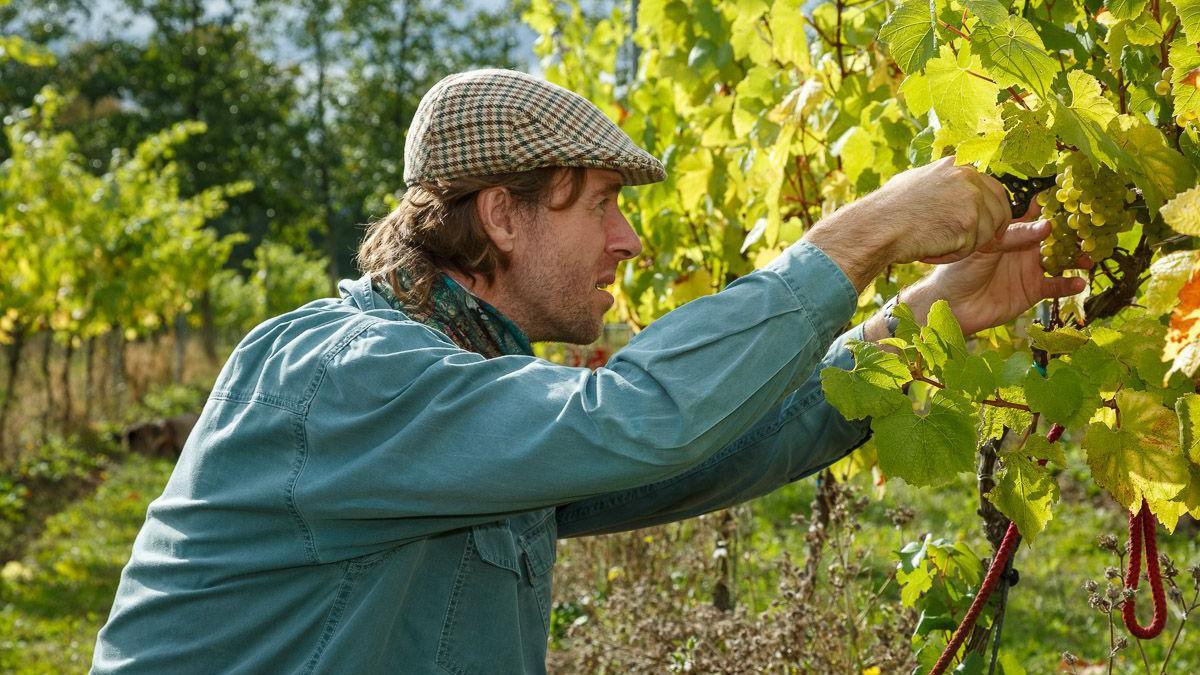
- Published22 October 2023
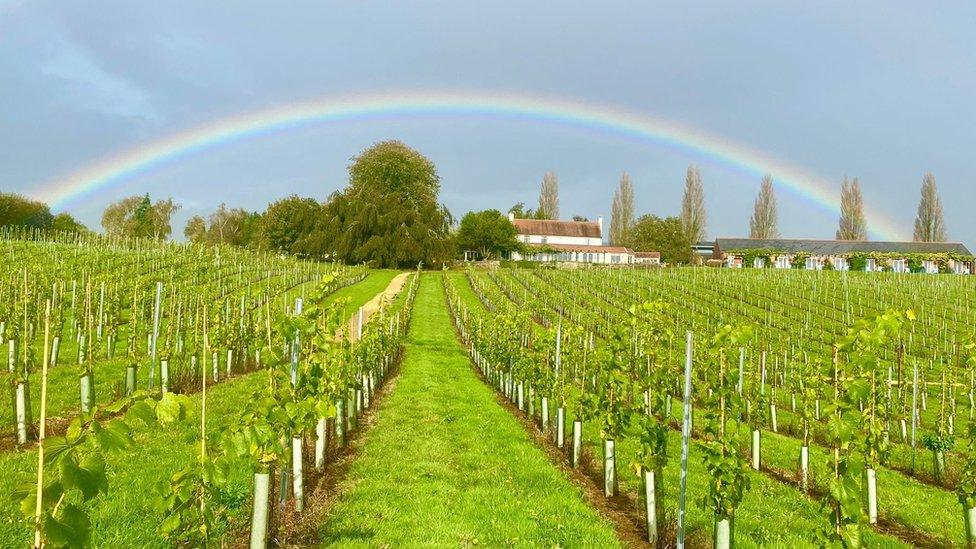
- Published16 August 2023
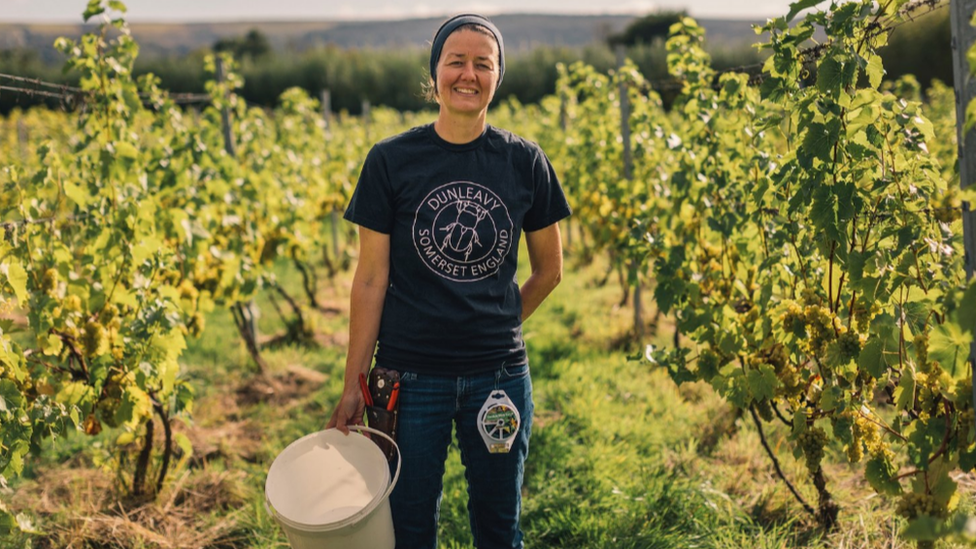
- Published10 August 2023
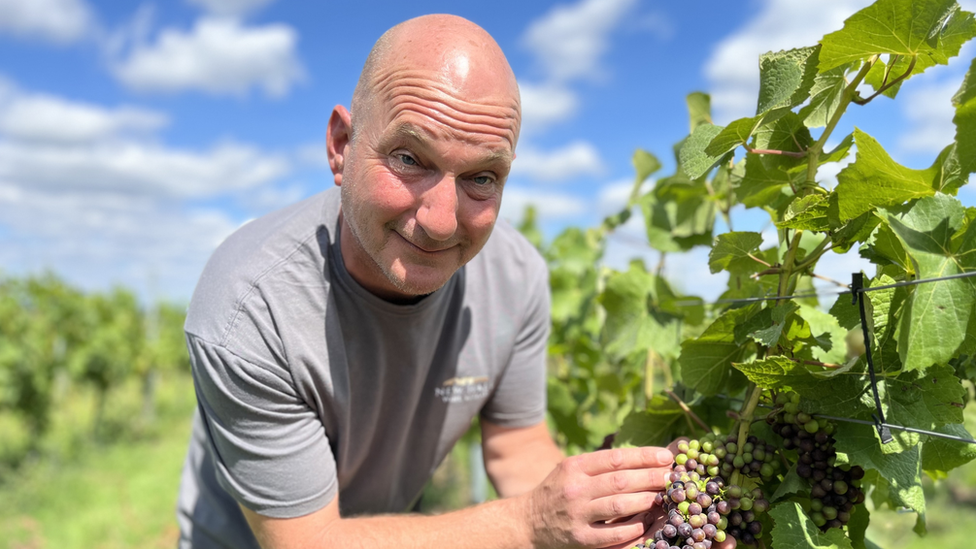
- Published27 October 2023
